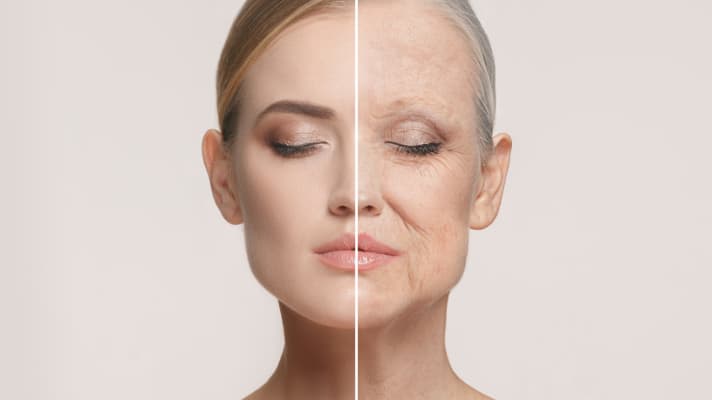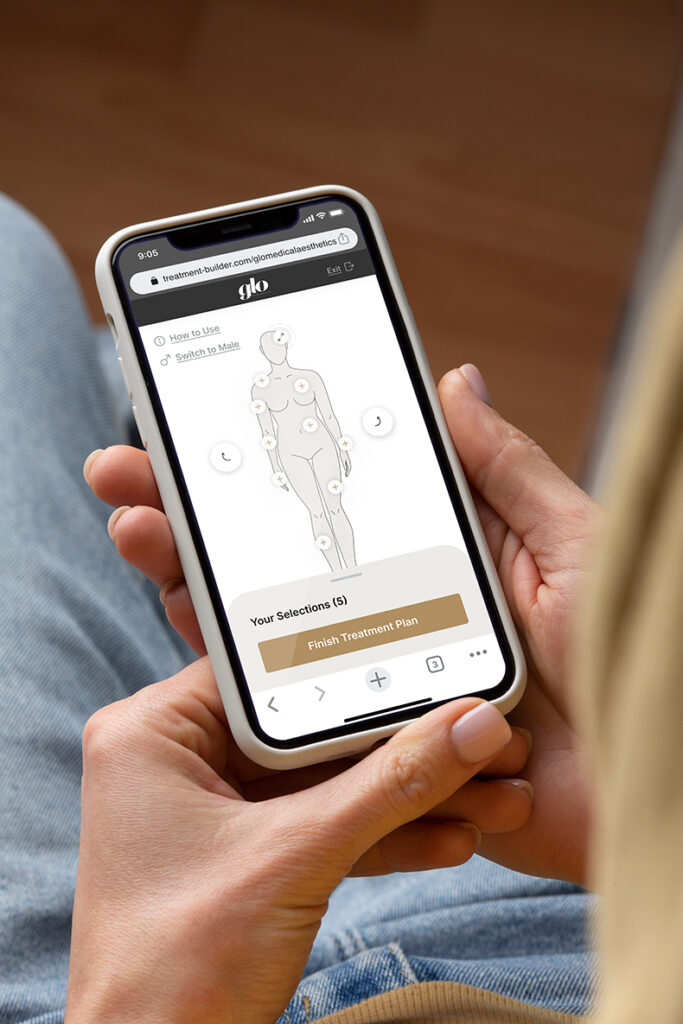
Working in the Medical Aesthetic field, I come into contact with patients (the majority female) ranging in age from mid-20s to 70s on a daily basis. Consistently I hear various complaints regarding skin issues, such as acne or dry skin, as well as other issues such as lack of energy, trouble sleeping, or decreased libido.
Case in point, one of my very best female clients is 48 years old. Her main concern for her skin was a noticeable increase in wrinkles and overall dryness. She is beautiful, in amazing shape, and always dressed to the nines. I could tell, however, at times when she would come in for treatments she seemed stressed, agitated, fearful. and sometimes even in tears. I would do my best to comfort her and offer her positive energy. On one visit, in particular, I Immediately noticed a difference in her entire being.
She was smiling, full of energy, vibrant, and generally just very happy I stopped looked at her, and asked, Who the heck are you?” She smiled and said, “I have found the most amazing doctor, Dr. Jeremy Draper. He is in the Midtown/downtown area at WellFit. He is an expert in BHRT (Bioidentical Hormone Replacement Therapy), and he has made me feel human again by regulating my hormones.” I was immediately intrigued, and the human body. They are not found in nature in this form but are created in laboratories, and some are even extracted from plants. The goal of BHRT is to restore youthful hormone levels in a way that safely and effectively combats symptoms of disease and aging. Optimal hormone levels are essential for optimal health in both men and women of any age.
When speaking specifically about skin and hormones, it is important to remember that hormones are constantly fluctuating each month, as well as over an entire lifespan. These constant fluctuations can wreak havoc on the skin. Certain skin changes could also be a sign of an underlying health problem.
In terms of skin aging, there are two types of factors:
EXTRINSIC: UV radiation exposure, lifestyle choices, and environmental toxins.
INTRINSIC: Genetic predisposition, chronic inflammation, and hormonal imbalance
Obviously, we have more control over the extrinsic factors by simply choosing to lead a healthier lifestyle and wearing sunscreen. It has been determined that a poor diet, particularly one high in sugars, starches, and other processed carbohydrates can exacerbate hormonal imbalances. These imbalances can lead to skin issues, insulin resistance, and metabolic disorders, such as diabetes and PCOS. Additionally, consistent exercise and maintaining a healthy body weight are also important to optimal hormonal health.
It is becoming more and more evident that we do have control over at least a portion of the intrinsic factors by maintaining hormonal balance through BHRT.
thickness, moisture, structural integrity, and collagen production. Estrogen can increase the production of hyaluronic acid, which helps maintain fluid balance. One of the most popular injectable “plumping” products in aesthetics is JuVederm• by Allergan, which is made of hyaluronic add. One unwanted side effect of too much estrogen is skin hyperpigmentation. This condition is termed melasma and may appear when taking oral contraceptives or during pregnancy.
PROGESTERONE is a hormone that helps balance the effects of estrogen on the skin and can prevent breakouts from occurring when there is too much estrogen present. Progesterone is also a natural antidepressant, anti-anxiety hormone, and sleep aid. There are numerous benefits to optimal progesterone levels, which both directly and indirectly benefit the skin.
TESTOSTERONE is a hormone with effects on the skin similar to estrogen. Optimal testosterone levels can benefit women by producing skin that is firmer, tighter, and has a healthier appearance. Increased muscle tone with testosterone helps to offset the decrease in subcutaneous fat seen at optimal levels. Testosterone also restores a more youthful glow by increasing oil production that is often diminished in dry, thin, dull, aging skin.
THYROID hormone helps regulate skin quality, overall energy levels, and metabolism in general. Skin in patients with low and even suboptimal thyroid function tends to look tired, dull, dry, and puffy. Feeling cold all the time, or having chronic dry skin, thin hair, and brittle nails can indicate that thyroid levels may be too low.
Educating patients and helping them understand how hormones can affect both their skin and health is paramount. With all the research now devoted to hormonal effects on the body and mind, we are seeing that hormones are truly powerful and are involved in almost every component of human biology and behavior.




